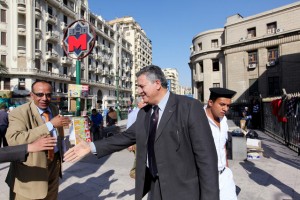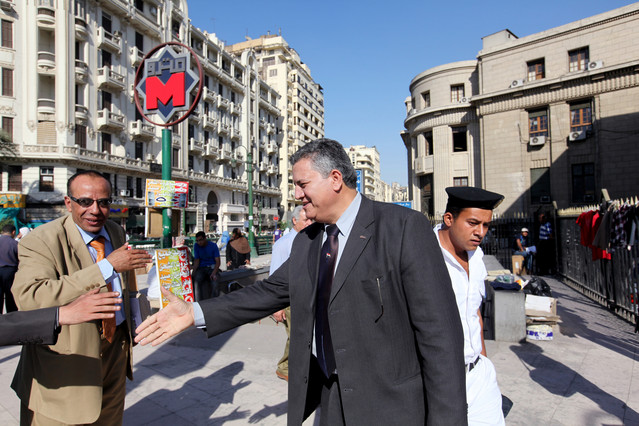By Sami Zaptia Tripoli 25 March – The German-based Friedrich Naumann Foundation for Liberty (FNF), in association with the Libyan NGO . . .[restrict]the National Support Group (NSG) organised a three-day workshop in Tripoli from 24 to 26 March entitled ‘How to Run a Successful Electoral Campaign’.
The FNF is a foundation for liberal politics in the Federal Republic of Germany. It aims to promote the goal of making the principle of freedom valid for the dignity of all people and in all areas of society, both in Germany and abroad.
The NSG is a leading multi-disciplinary NGO, think-tank and pressure group in Libya with various groups including the Womens Group, Democracy Group, Health Group, Oil & Gas Group, Training and Education Group and Policy Group
The workshop was targeted at candidates and their key supporters in Libya’s forthcoming local or general elections. It included two members of Parliament from Egypt and Morocco.
It set out to explain the institutional and legal framework of the electoral process and the implications for Libya’s own campaigns. It also set out the experiences of Liberal movements in recent elections in the Arab world and how these might inform Libya’s campaigns.
Participants were also mentored on developing suitable programmatic messages and understanding the importance of a suitable electoral programme.
Advice was given on how candidates should identify their target groups and how to familiarise themselves with suitable strategies and techniques to reach these groups, in their campaigns and beyond. Workshop participants were also guided on how to develop a mechanism to protect their votes on election day.
The plenary session of the workshop entitled ‘Democratic Elections in the Arab World – Lessons from Morocco and Egypt’ on the 24th was opened with welcoming remarks by Abdulminam Sbeta, president of the General Assembly of the NSG. He talked about the coming Libyan elections and highlighted the problematic issue of the database, electoral list and demographics.
Libya’s real population he estimated to be about 6.5 million as opposed to the 5.3 million figure that is based on the last 2006 census – which will be used as the bases for elections by the Election High Commission.
He estimated that the proportion of Libya’s population that is aged under 34 in 2012 is 66% and Libya’s population growth in 2012 is now down to 1.5% dramatically lower than the 4.21% in 1973. He stressed that both the youth and women section of Libya’s population will play a vital role in Libya’s elections.
He underlined the fact that the workshop was concentrating on Arab election examples and lessons and introduced Mr Shehab Wagih from Egypt, the programme officer for the Arabic Alliance for Freedom and Democracy, an organisation of Arab Liberal parties.
“We are not here to display the various European experiences,” Mr Wagih stressed. “We are here to discuss the various regional experiences such as those of Egypt and Morocco. FNF is an educational institute helping spread experiences of open and liberal debate and learning”, he explained.
“We were in Benghazi only yesterday and we were impressed by the hunger to learn from experiences from the neighbouring Arab nation’s experiences in their political journey”, he concluded.
Mr Hamdy El-Fakhrani, an Egyptian MP and vice-president of the Democratic Front Party next gave an overview of the Egyptian election and experience.

Mr Aziz Darmoumy, a Moroccan MP and president of the Popular Youth Movement of Morocco made comparisons between how Morocco and Egypt dealt with issues of women’s rights, and youth and their demands and needs. He discussed their roles and the rights of minorities such as the Amazigh (Tamazight), the Touregs and other religious minorities in Morocco.
He pointed out the experience of the Moroccan Truth and Reconciliation Process: “in which the Moroccan state admitted its errors. For example, the Moroccan Amazigh (Tamazight) community was not recognised by the state historically, but after the reconciliation process, they and their language and culture were recognised.
“Morocco also reconciled itself with the youth and women and recognised their role through a quota of 60 seats for women and 30 seats for the youth in the 395 seat parliament.” He admitted that the quota system was an experiment and said that in principle he agreed that the quota system was undemocratic.
Moreover, he discussed the issue of extremists and the role of parties that use Islam for political marketing and the role of money in corrupting the political process – making it non-transparent and fair. The process of drafting the constitution was also discussed, which Mr Darmoumy felt was pivotal to the process of the election. [/restrict]











